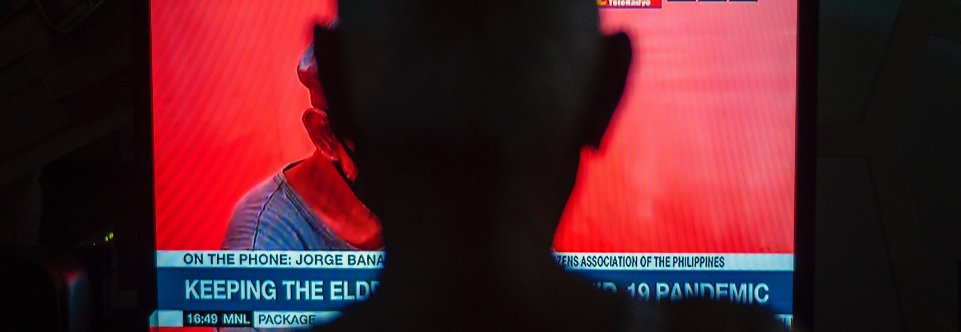“You have to do your own research instead of believing everything they tell you.” Have you ever heard this online? Do you get tired of hearing this online? I sure have. Whether it’s about vaccines, election results, global warming, or just that one high school acquaintance selling weight loss products, everyone online seems to be the only person that really knows what’s happening. Meanwhile, everyone else is a drone that is just believing everything “they” say. Geesh. When did listening to experts become a sign of a weak intellect? But then, how should we treat the opinion of experts? Why do we listen to what “experts” say? If we do it, there must be a reason.
Fear not. Like every other small and basic question, philosophers have overthought it so you don’t have to. In thinking about this question of expertise, I think the ideas of Linda Zagzebski and Joseph Raz may come in handy (although I’ll admit this version might be a bit scaled back from theirs).[i]
According to them (and to the dismay of people online) there are very good reasons for trusting what the experts say without even thinking about it. When an expert says something, the rational thing to do is to set aside what we might think about the subject and go with what they say. What we should not do is treat expert testimony like any old piece of evidence to be weighed and judged upon.
“Now why on earth would I do that?” you might be asking. To answer this question, Zagzebski and Raz use what they call the Track Record Argument.[ii] This process states that if one’s goal is to arrive at truth, their best shot is to always go with an expert’s assessment. In other words, if you go with what the experts say, you will arrive at truth far more often than if you treat expert testimony like a piece of evidence to be weighed and judged. Let’s look at a few hypotheticals:
Say you are me and you haven’t taken a math class since high school (I’m a philosopher, so, clearly, I don’t need math). I’m presented with a very difficult equation. To help me, I’m given the aid of a mathematician. The mathematician is right 95% of the time, whereas I’m right about 15% of the time. If I just go with the mathematician’s answer every time, I will get the equation right 95% of the time. If I debate whether to go with the mathematician’s answer or my own, I will be right less often. The smart thing is to default to the mathematician. (This assumes of course that the 5% of questions that trip up the mathematician also trip me up, which I take to be a reasonable assumption).
“Okay, yeah, maybe that sounds about right” thinks the skeptic, “but what if the expert is not that reliable?” Let’s take a less precise science, meteorology. Say the weatherman is only right 65% of the time. The same calculations apply. If you go with what the expert says, you’ll be right 65% of the time.
If you go with your own opinion sometimes, you’ll be less accurate. From this, we can conclude that if your goal is being right, it’s rational to default to the expert’s authority.
So, according to Zagzebski and Raz, we listen to experts because they are right more than we are. Honestly, this shouldn’t come as a surprise to anyone. That’s why we take the medicine the doctor gives us, it’s why we listen to attorneys, it’s why we seek help from a professor, etc.
Unfortunately, the same reasoning applies to people we incorrectly identify and trust as experts. As soon as you accept someone as an expert, it becomes rational to believe what they say regardless of what you might think. This is great if you’re right but can be disastrous if wrong. You can probably think of people who have put too much stock into someone not worth listening to. It might have been a sketchy website, weird podcast, online guru, successful businessperson, or any other number of things. But the same reasoning applies. If we take an incorrect source to be an expert, it becomes rational to accept everything they say.
This is something that has helped me understand people with different view than mine. I remember that it is not the case that the other person is crazy and hates me and what I stand for. Perhaps the other person’s journey has led them across experts with different opinions. The other person might be acting perfectly rational, given their circumstances. If anything, all of this teaches me how importance it is to choose the right expert to listen to. Their word carries so much weight within us.
So how do we make sure we are listening to the right expert? I’ll be honest, I’m a philosopher. It’s beyond my purview to give such specific advice. But it probably has to do with research, experience, and maybe a little faith. As we know, “by their fruits ye shall know them.”[iii] Of course, that came from a time before the internet. Today, we can try out expert’s advice in our lives as well as make sure their background checks out. However, whatever you do, don’t pick your experts lightly. They are too important to be taken lightly.
But then again, I’m no expert. You don’t have to believe what I say.
This blog post was written by Pavel Bermudez, Humanities Center Undergraduate Fellow.
[i] See Raz, Joseph. 1988. The Morality of Freedom. Oxford: Clarendon Press, and Zagzebski, Linda. 2012. Epistemic Authority: A Theory of Trust, Authority, and Autonomy in Belief. Oxford: Oxford University Press.
[ii] Lackey, J. 2018. Experts and Peer Disagreement. In M. A. Benton, Knowledge, belief, and God: New insights in religious epistemology (pp. 228-245). New York, NY: Oxford University Press.
[iii] Matthew 7:20






